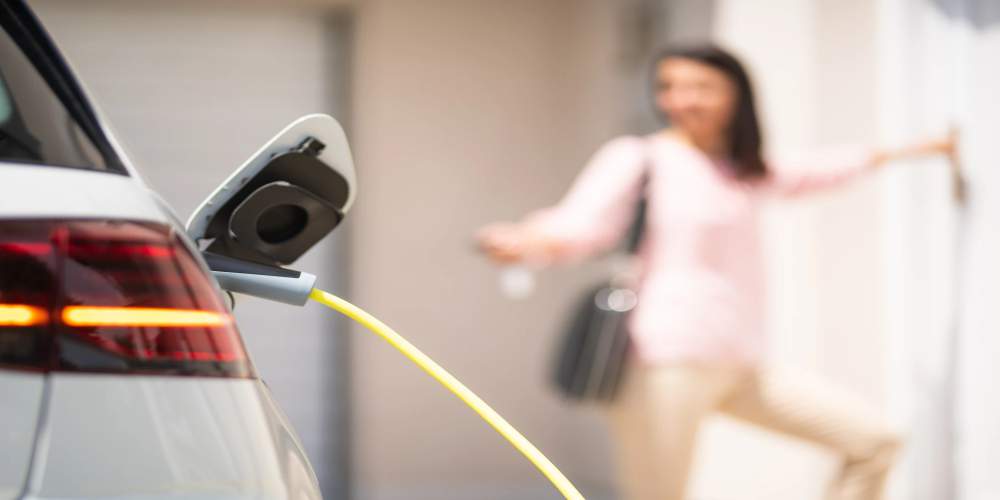Read Time : 5 Minutes
Electric Vehicle Charging Information
The move towards electric powered cars has proved to be one of the biggest logistical challenges of the last ten years. Not only have we needed to develop technology that works and is affordable for the average consumer, there has also been the not insignificant problem of making sure that drivers have quick and easy access to charging points.
If you do not yet drive an electric vehicle, you may not have noticed the number of charging locations that have popped up across the UK and Ireland. Check out a project like Zap Map and you might even be surprised at the number, some 3,000 and growing by the week. Whilst the number of charge points still needs to increase dramatically, we may be seeing the first real changes that begin to make a difference and steer people towards a more carbon friendly travel option – the electric car.
COMPARE PRICES FROM LOCAL INSTALLERS
Compare prices from local companies fast & free
Enter your postcode to compare quotes from leading professionals. We promise to keep your information Safe & Secure. Privacy Policy
The Rise of the Plug-In Car
In truth, the electric car market has taken time to bed in and gain popularity, particularly in the UK. Problems with infrastructure and the cost of vehicles has often put buyers off, not to mention the time that it takes to recharge up a battery. We are used to putting in some petrol and driving off, not waiting for 30 minutes or even a few hours before we can reliably hit the road again. The great news is that more efficiency and better battery power has made things much easier recently.
The year 2022 may be marked down as a watershed moment for our growing number of electric vehicles – both pure electric cars and hybrids saw a significant rise in sales over last year which could mean an important sea change is underway. The biggest change has been in the sale of hybrid cars – ones that use a mix of electricity and fuel – which saw a boost in sales of over a 1000% in January 2022. It seems we are indeed looking for more carbon friendly vehicles and the fact that the infrastructure is now largely in place has made a big difference.
Granted, the government has been subsidising each car purchase to the tune of £5,000 with their plug-in grants and there are also tax advantages of choosing hybrid over conventional cars, but many industry experts believe we are finally beginning to feel more comfortable with electric cars. The performance of hybrid cars has improved dramatically and with manufacturers such as Porsche and BMW coming on board, motorists are more confident in buying. Most cars can travel hundreds of miles on a single charge and with encouragement to have home electric chargers installed there is less need to worry about the currently confusing network of public points available should you need them.
What are Electrical Vehicle Charging Points?
Essentially you pay your money and just plug your car battery into the charging point. These points are generally defined by the speed with which they charge your car, from slow up to fast through to rapid. A slow charge normally takes place overnight, a fast one can do it in a just a few hours, whereas a rapid charge is designed to work in about half an hour. You can find charging points at various outlets across the UK but there are also moves to make home and work charging more readily available.
How do Charge Points Work?
A slow charge can be achieved over about 7 or 8 hours and works by attaching your car battery to a general electricity supply. Slow chargers typically operate at 3 kW (13-16 Amps) and you can use a normal plug socket but it is advised to have a dedicated unit installed at home or work. The first initial public charge points were of this type but they are now being replaced by faster units.
Fast chargers deliver between 7 and 22 kW and provide a much quicker load time of three to four hours. As of September this year there were over nine thousand fast chargers in the UK. Rapid chargers can come in either AC or DC. AC chargers up to about 43 kW can provide an 80% charge in about 30 minutes. A DC charger provides up to 50 kW and delivers a similar result.
Whether your EV can take either the higher AC or DC charging will depend on your model of car and the kind of attachment you have. Connectors also vary depending on the amount of charge you can have and whether it is AC or DC. You may need to buy different cables including a portable charging cable that allows you to safely perform a charge at home. This video from EVConnectors will go a long way to explaining the slight complexity when it comes to having the right cable.
Charging at Home or Work
One of the issues, of course, with electrical charging is how long it actually takes. In a world where we often expect immediate reactions, the level of charging has been one of the main detractors for people thinking about buying an EV. With a slow charge taking several hours it is best utilised at home or in the workplace. You can plug in your car and leave it overnight or park up for your day’s work and do a similar thing.
One of the problems for homes is having the plug point accessible which means that if you park at the roadside you may have difficulty in charging up, something that could again turn many potential consumers away from buying an electric or hybrid car. Owners of EVs are opting to have home charging points installed and there is plenty of help for them to do so at the moment from government initiatives.
The cost of a standard charging point can be anything between £185 and £500 for a standard installation – the good news is that there is currently a government subsidy available that can cover 75% of the cost up to £700 which means most owners can get an installation for next to nothing. A dedicated charging unit can cost up to about £1,000 but with increasing demand prices are beginning to come down.
Charging Networks
Whilst most of us who buy EVs in the future will probably use home and work charging points, there are now networks available across the UK. You can opt to buy swipe cards for a set amount or use a mobile device to pay. Most operators offer a Pay as You Go option and prices at the charger vary from just a few pence through to about £5 depending on the plan you go for.
You have a choice of national and regional networks and it can often seem confusing to new EV owners. National Networks: Charge Your Car Polar Network Ecotricity Pod Point Zero Carbon World Tesla Regional Networks: ChargeNet in Bournemouth, Dorset and Poole Source London Source East Source West ChargePlace Scotland Energise in South East of England Plugged-In Midlands GMEV Greater Manchester eCar Northern Ireland
Zap Map
Finding where your nearest public charging place is can also be a problem but most of the network suppliers provide their own apps or website maps that customers can access. A site such as Zap Map is designed to give access to all the charging points (some 3,000) across the UK and Northern Ireland along with useful information about what is happening in the industry.
EV Charger Manufacturers
With the growth in the industry over the last few years, there has been an increase in the number of companies offering and manufacturing home and business EV chargers. These include:
- Charging Solutions who produce a range of devices for the domestic and commercial use including fast chargers and lead accessories.
- Wallb-E are a Germany based company who operate and develop commercial EV chargers including rapid AC and DC installations.
- Elektromotive operate across most of Europe and provide both domestic and commercial solutions to charging up your electric vehicle.
Government Initiatives and Grants
There are a number of government initiatives and grants for EV owners to make life easier. Electric cars with CO² emission levels of less than 50g/km and the ability to travel at least 112km (70 miles) with zero emissions are eligible for a grant of up to 35% off the purchase price to a maximum of £2,500. To qualify for the grant, cars must cost less than £35,000. If you want to get an EV at a discount price now is a good time.
To help promote the installation of home charging devices, the government has introduced the Electric Vehicle Homecharge Scheme (EVHS) which is a grant that provides a 75% contribution to the cost of one chargepoint and its installation. A grant cap is set at £350 (including VAT) per installation. The main requirement is that a person owns, leases, or has ordered a qualifying vehicle and has dedicated off-street parking at their property.
The grant works by a customer choosing an EVHS installer to install their chargepoint. The EVHS installer checks that they qualify and then applies on the customer’s behalf. The installer will bill the customer for the price of the installation, less the grant amount they have applied for. If the application is successful, the installer will be paid the grant amount that they have offset from the customer’s bill. The Office for Zero Emission Vehicles (OZEV) aims to process claims for experienced installers within 30 working days.
The Future of Electrical Vehicle Charging
We may, in fact, reach a point when we don’t need to plug our EVs into a socket to charge up the battery. In the future our roads could do it for us. Trials have been underway for some time to investigate the possibility that new technology embedded in our roads could charge up batteries.
According to the Independent recently:
“It's not such a far-fetched idea - there's already a 7-mile stretch of this road in South Korea, that charges electric buses as they pass over it.”
For the moment we will have to contend with finding a vehicle charging point when we need it but the future will almost certainly be about more efficient batteries and better ways of getting the power we need to stay on the road. Find installers of EV chargers in your area today.
Find a local installer
Welcome to the biggest directory of UK renewable energy companies







